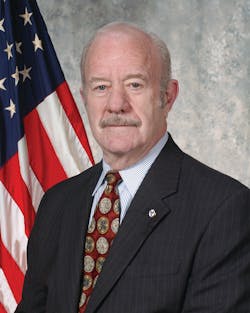Most American citizens will not make use of our services, although we depend on them to support us with their tax money or donations. Accordingly, what are we selling? How do we convince them to give up a portion of their hard-earned money to fund our operations?
We are selling confidence and trust. Citizens should be confident that we will be there for them when they have a need for our services and confident that we have planned and prepared for their personal emergency. Further, we are quite capable of caring for them and their property. The trust piece comes into play as our citizens trust that we will treat them and their property with respect and sensitivity without regard to social status, political or religious beliefs or any other personal characteristic that may set them or their family apart from the wider demographic.
Eroding trust
So what are the circumstances that erode these two important corporate character values? It is a hard fact that despite how rigorous our selection process might be, unsavory individuals will infiltrate our organizations and may exist there much longer than they should. How can this be? How can an organization allow someone to continue to serve among noble and ethical members, who would severely damage the stability of their organization?
I believe we can envision some traditional traits of fire and EMS organizations as the potential sources of this circumstance. Firefighters are a unique breed of human. Firefighters are really out there. No one truly serves beside them. No other agency or branch of government does what they do or is capable of doing exactly what they do. So they only have themselves and their comrades to depend on in the face of the peril they put themselves in the service of others who really don’t understand them or the risk they take.
Accordingly, I suspect there is some level of denial and maybe complacency involved when we suspect “one of our own” is violating a fundamental core value or criminal law. Leaders are also very aware that if this type behavior is exposed then the organization may falter so “it is best we handle this issue internally.” In many cases, the “issue” is handled by expelling the individual, who moves on to another fire department who is desperate for help and sees an experienced firefighter ready to help right away. So no background investigation is completed and the individual is brought in. This cycle spells catastrophic disaster for organizations that depend on public support to provide their critically needed resources.
How to respond
Leaders of organizations know what they must do when faced with gross violations of policies, criminal law or ethical and moral values. Zero tolerance is the only choice. When criminal laws are broken by members of a fire or EMS organization, as members of public service organizations we must notify law enforcement authorities. The following breaches of criminal laws or ethical and moral behavior are examples of behavior where zero tolerance must be the policy and well communicated to onboard and new members:
• Arson
• Theft
• Physical attack of another member or a citizen
• Unwanted sexual contact with another member or a civilian
• Conviction of a felony
• On- or off-duty use of illegal substances
It is impossible for me to list all the trouble members can get into that will humiliate and erode the respect, confidence and trust the public has in a service organization. I think the best approach to take in these matters is to visualize a description of the members conduct on the front page of your local newspapers or on the 6 P. M. newscasts. Then visualize yourself on camera responding to the question, “So, Chief, tell me what has been your response to this disgusting behavior?” Then act accordingly.
The views expressed in this commentary are mine and do not represent those of the U.S. Fire Administration, FEMA, DHS or the Administration.
GLENN A. GAINES is the Federal Emergency Management Agency’s (FEMA) Deputy U.S. Fire Administrator for the U.S. Fire Administration (USFA). He began his tenure in 2009 and manages USFA programs and training activities conducted at the National Emergency Training Center. Gaines began his fire service career as a member of the Fairfax County, VA, Fire and Rescue Department. During his 35-year career, he served in numerous capacities, including fire marshal, chief training officer and chief of operations, culminating in his appointment as fire chief from 1991 to 1998. Gaines holds a degree in fire administration and has served as a faculty member at the USFA’s National Fire Academy. He has received the International Association of Fire Chiefs (IAFC) Metropolitan Fire Chiefs President’s Award of Distinction, Metropolitan Fire Chiefs Lifetime Achievement Award and President’s Award for meritorious service to the fire service.
Glenn A. Gaines
GLENN A. GAINES was the Federal Emergency Management Agency’s (FEMA) Deputy U.S. Fire Administrator for the U.S. Fire Administration (USFA). He began his tenure in 2009 and managed USFA programs and training activities conducted at the National Emergency Training Center. Gaines began his fire service career as a member of the Fairfax County, VA, Fire and Rescue Department. During his 35-year career, he served in numerous capacities, including fire marshal, chief training officer and chief of operations, culminating in his appointment as fire chief from 1991 to 1998. Gaines held a degree in fire administration and served as a faculty member at the USFA’s National Fire Academy. He received the International Association of Fire Chiefs (IAFC) Metropolitan Fire Chiefs President’s Award of Distinction, Metropolitan Fire Chiefs Lifetime Achievement Award and President’s Award for meritorious service to the fire service. Chief Gaines passed away on April 12, 2015.






